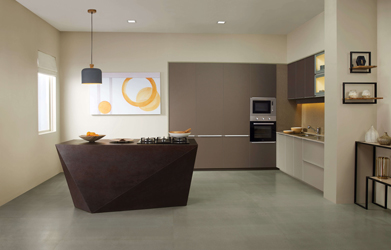7 Ways To Save Resources In Your Kitchen
Monday, December 10, 2018

The average kitchen today is quite different from what it used to be a few years ago. With the advent of modular kitchen designs, your kitchen is much more than just a cooking station—attractive styles and designs ensure comfort and convenience so working in the kitchen is not a tiring, time-consuming job anymore. However, while all the different gadgets make your work easier, it is important to ensure that you do not waste energy and resources as you work in the kitchen.
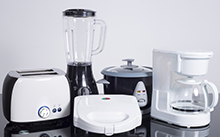
While setting up a modular kitchen or remodelling it, choose lighting, fixtures and appliances with good ratings from the BEE (Bureau of Energy Efficiency). Such gadgets and fixtures not only use less energy and lessen your bills, but also reduce harmful emissions like greenhouse gases and pollution.
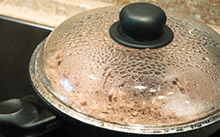
You do not need to compromise on cooking to save resources in the kitchen, but you can be smart about it. If you cook on a stove-top, try to use the pressure cooker as it reduces cooking time and saves gas. Always cover pots and pans while cooking as this can save up to three times more energy. Turn off the stove or oven just before the food is completely cooked, and let the heat of the vessel continue cooking it.

The most important resource in the kitchen is food, and there are several ways to ensure that there is no wastage. If you have shopped in bulk, cook large portions and freeze whatever you do not need for later.
While chopping vegetables or cooking meat, keep aside scraps like mushroom stems, vegetable trimmings, chicken bones, etc. They can be used to make delicious stock. Consume fresh food items first and buy groceries according to how much you can consume without anything going bad.

Compact fluorescent light (CFL) bulbs are an excellent way to save energy in your kitchen as they use significantly less energy compared to traditional yellow light bulbs and tube lights. The quality of light is also better with these bulbs; you do not have to change them often. Replace all the bulbs in your kitchen with CFL ones, and you will soon notice the difference in your electricity bill.

No light is quite as bright and nice as sunshine, and you can take advantage of this natural form of energy by modelling your kitchen to let in plenty of daylight. Plan your work area (where you chop vegetables) near the window so that you do not have to use electricity during the day. Having an open window and a breezy kitchen also allows good ventilation, so you do not have to keep the exhaust fan switched on at all times.
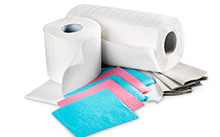
Tissue paper boxes have become a common fixture in the contemporary kitchen, but remember that trees have been cut down to make these. Limit your use of paper towels while cooking and keep some clean sponges or old clothes ready for mopping. Sponges and cleaning fabrics are easily available at the supermarket, and cost a fraction of what tissue paper boxes cost.
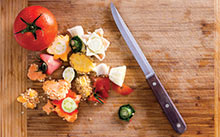
Waste can be useful too. Before putting dirty utensils in the sink, dispose leftovers in the trash bin. Vegetable and fruit peels, paper towels, and other bio-degradable items can be used to make compost, a source of nutrients for your plants.
With these handy tips, saving resources like energy, water, and food in your kitchen becomes quite a simple job. Just a bit of conscious planning can help you do your bit for the environment and also lessen your monthly bills.
YOU MAY ALSO LIKE





